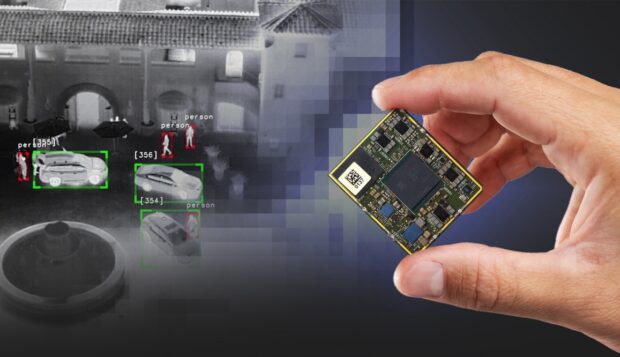part of Teledyne Technologies Incorporated, has announced Teledyne FLIR AVP, an advanced video processor designed to power Teledyne FLIR’s Prism AI and computational imaging at the edge.
The AVP incorporates the latest Qualcomm QCS8550, the most advanced mobile processor chip from the leader in mobile, automotive, and robotics system-on-chip (SoC) technology. The AVP provides best-in-class artificial intelligence (AI) performance within a small, lightweight, and low-power module for thermal and visible camera integration into unmanned aerial vehicles, robots, small gimbals, handheld devices, and fixed-mounted security systems.
AVP runs the Teledyne FLIR Prism AI and ISP software libraries and interfaces with the Boson and Neutrino thermal infrared imaging camera modules and a wide range of popular visible cameras. Trained on the world’s largest thermal image data lake of more than 5 million annotations, Prism AI is a powerful perception software designed to detect, classify, and track targets or objects for automotive autonomy, automotive automatic emergency braking, airborne camera payloads, counter-drone systems, ground intelligence, surveillance and reconnaissance (ISR), and perimeter security. Prism ISP is a comprehensive set of image processing algorithms that include super resolution, image fusion, atmospheric turbulence removal, electronic stabilization, local-contrast enhancement, and noise reduction.
“The new AVP is the most powerful and SWaP-optimized processor on the market today, running AI workloads up to five times faster than competitive offerings,” said Dan Walker, vice president of product management, Teledyne FLIR. “The combination of powerful edge computing and our Prism digital solutions ushers in a new era of electro-optical system capabilities while simplifying development and reducing integration risk.”
The AVP is designed to empower integrators to build powerful, edge-intelligent products. It is supported by several tools to simplify and streamline development including a Qualcomm RB5 development kit. Software and board-support packages are also available to enable developers to design and fabricate custom interface boards that meet each product’s specific form, fit, function, and input-output (IO) requirements.
Source: Press Release

